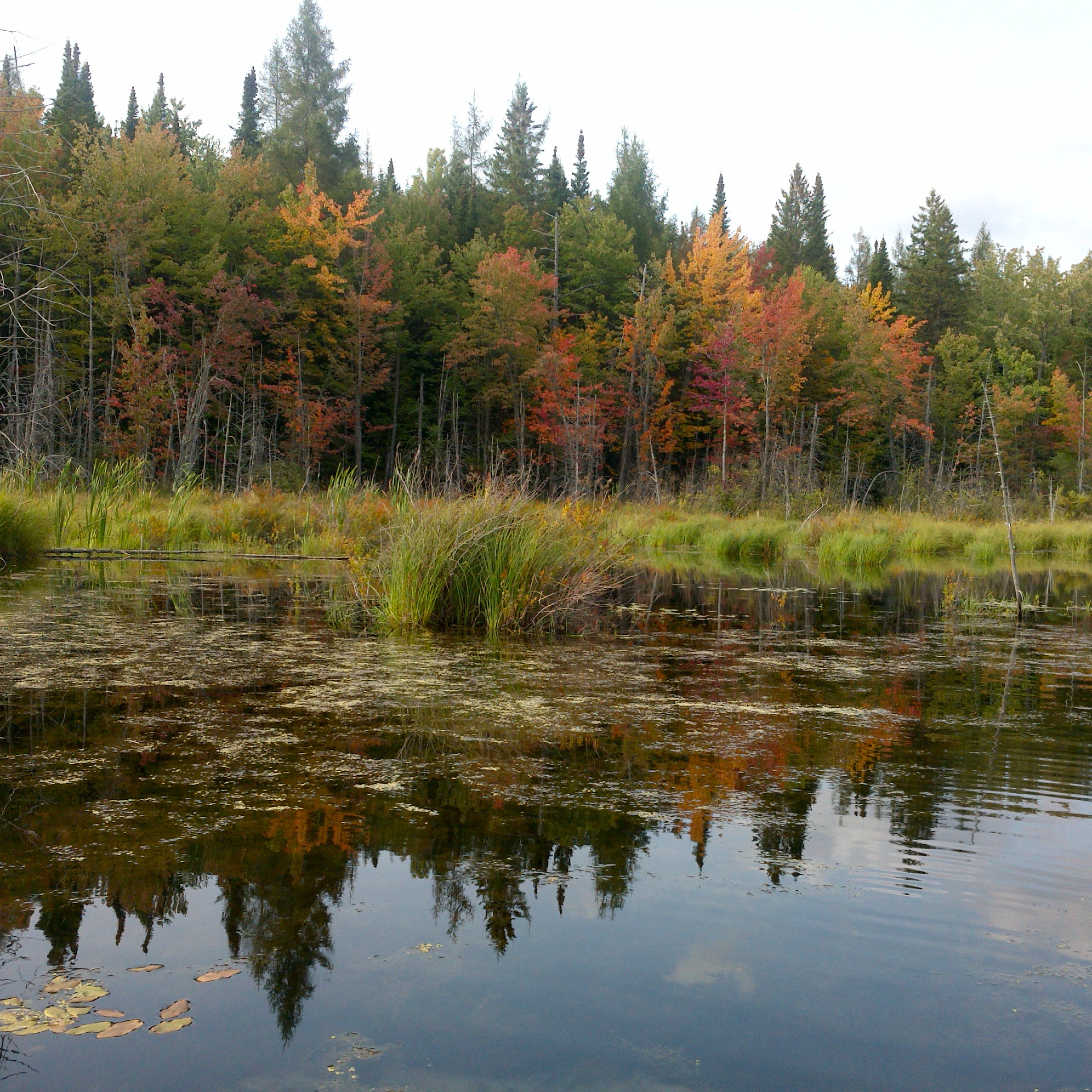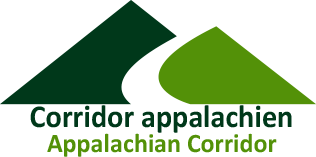
18 Aug ANOTHER AREA PROTECTED IN PERPETUITY: LAC SAUVAGE IN THE MUNICIPALITY OF SAINTE-ANNE-DE-LA-ROCHELLE

Appalachian Corridor is pleased to announce that Lac Sauvage has been designated a protected area, meaning that the water and surrounding land will remain untouched – forever! This conservation project is our first in Sainte-Anne-de-la-Rochelle, and it protects 13.5 hectares of biodiverse natural habitat.
WETLANDS WORTH PROTECTING
After Jean-Thomas Bédard and Nathalie Durand bought their property in 2013, they realized there was a large pond on it, created by a beaver dam. The new owners’ immediate reaction was to try and protect this highly biodiverse area, so they reached out to Appalachian Corridor. After surveying the resident species, the team suggested the couple donate the land through a conservation easement. The agreement was officially registered before a notary last spring.
Like all wetlands, this large expanse of marsh and water surrounded by a healthy mixedwood forest, is extremely biodiverse. Many bird species live there, including the great heron, American bittern, black and mallard ducks as well as the American mink and river otter. Many at-risk species also make their home there, such as the four-toed salamander, snapping turtle, pickerel frog, Monarch butterfly and bobolink. The plant life is just as varied as the wildlife, and includes species such as bog-myrtle and horned bladderwort, a carnivorous plant that catches its prey using small bladders. (The bladders have sensitive trigger hairs surrounding a trapdoor; when an organism touches the trigger hairs, the trapdoor opens, quickly sucking the prey and surrounding water inside.) The body of water is also a stopover point for migrating birds that gather here by the hundreds each autumn. Jean-Thomas and Nathalie consider this easement their gift to future generations. According to Caroline Bisson, Interim Co-Executive Director at Appalachian Corridor:
Here at Appalachian Corridor, we’re proud to have been able to help protect this vital habitat. The fact that this magnificent property is now protected is also great news for the region because of the many ecological services it provides, that help maintain a balanced ecosystem.
THANKS TO OUR FUNDING PARTNERS
We would like to express our sincere thanks to all the financial partners who supported this project: the Fondation de la faune du Québec and the Government of Canada through Environment and Climate Change Canada’s (ECCC) Community-Nominated Priority Places (CNPP) program for species at risk.
ABOUT
The Fondation de la faune du Québec (Quebec wildlife foundation) is dedicated to conserving and managing wildlife and its habitats. With contributions from over a million Quebec hunters, anglers, and trappers as well as thousands of donors and many private companies, since 1987 the foundation has supported over 2,000 organizations across Quebec. The efforts of all these stakeholders and actors together have helped create a groundswell of support for wildlife protection. fondationdelafaune.qc.ca
The Canada Nature Fund supports the protection of Canada’s biodiversity through the creation of protected and conserved areas and through initiatives that help to recover species at risk. The Fund is available to not-for-profit and Indigenous organizations, provinces and territories, and others. To learn more, visit: Canada Nature Fund at Canada.ca.
Canada’s Ecological Gifts Program provides a way for Canadians with ecologically sensitive land to protect nature and leave a legacy for future generations. Made possible by the terms of the Income Tax Act of Canada and the Quebec Taxation Act, it offers significant tax benefits to landowners who donate land or a partial interest in land to a qualified recipient. Recipients ensure that the land’s biodiversity and environmental heritage are conserved in perpetuity. https://www.canada.ca/en/environment-climate-change/services/environmental-funding/ecological-gifts-program/overview.html
Since 2002, Appalachian Corridor has been working to protect the Northern Green Mountains, part of the Appalachian Mountain chain that extends into southern Quebec. Its mission is to conserve adjacent tracts of land to create a vast, natural area that will be protected in perpetuity. In response to the dual crisis of climate change and biodiversity loss, Appalachian Corridor works with its conservation partners to implement a conservation strategy that, to date, has protected close to 19,000 hectares of ecologically valuable land. corridorappalachien.ca

